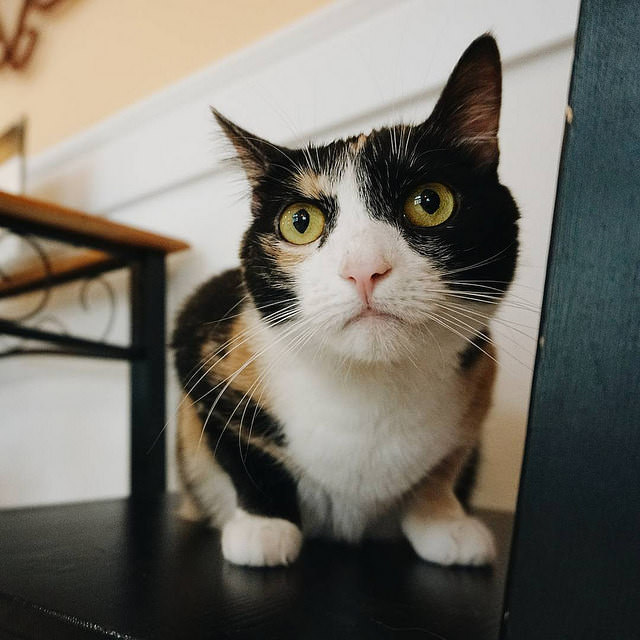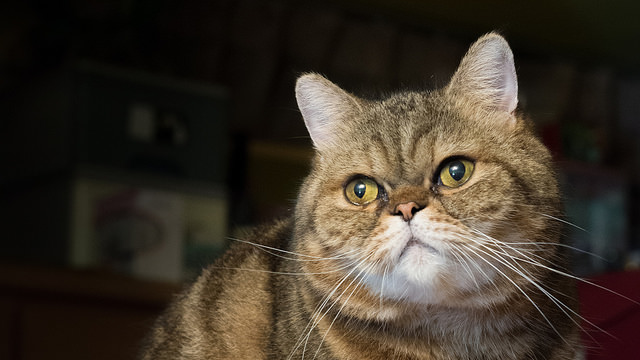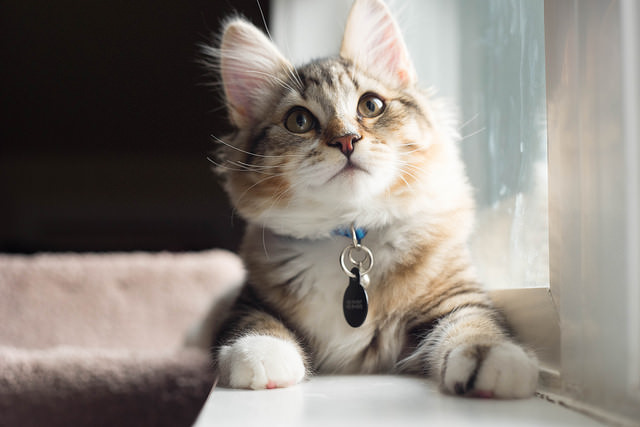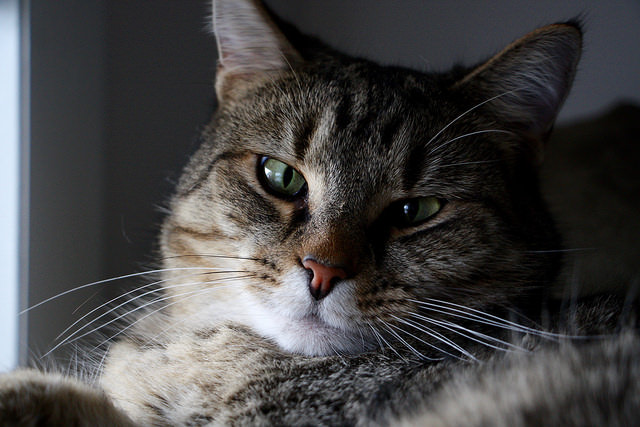Litter box aversion is one of the most common cat behavioral problems, and it can be hard to understand since it can be rooted in so many different problems (some of which are even medical instead of behavioral). It can be so distressing and destructive that it’s the #1 reason cats end up in animal shelters each year. Understanding the reasons why a cat may begin to urinate outside the box can help you assess your home environment for triggers, and develop a game plan for coaxing your cat back into the box. Here are 6 of the most common reasons cats avoid their litter boxes.

Image: Reed Probus via Flickr
#1 – Territorial spraying
Territorial spraying can happen if you live in a multi-cat household or if there’s a neighborhood cat prowling outside. Your cat will do this if he feels his home is being threatened by another cat. Though it is often lumped in with “litter box problems”, spraying is different than aversion. When urinating, a cat will squat; when spraying, a cat will stand up straight and back up against a vertical surface. The amount of urine released during a spray is far less than a full bladder release, which is why cats who spray will usually still leave full clumps of urine in the box.

Image: 迷惘的人生 via Flickr
#2 – The logistics aren’t right
Cats are finicky creatures and may avoid the litter box if something has changed or it isn’t quite to her liking. Consider if you’ve changed anything recently, like the location of the box, the size of the box, the addition of box liners, or a change in the type of litter you’re using.

Image: max ogden via Flickr
#3 – Painful medical problem
Cats who experience pain while urinating will associate that pain with the litter box and may begin to do their business elsewhere. If your cat begins to urinate outside of the litter box and you can’t see an obvious reason for the behavior, see her veterinarian right away to rule out a health issue (like a urinary tract infection).

Image: Shannon Badiee via Flickr
#4 – The box is too dirty
Cats have very strong senses of smell and an unclean litter box can be overwhelming and distressing for them. Get into the habit of scooping the box every day and doing a complete litter change and clean the box with hot, soapy water every once in a while. It’s recommended that you do a complete change and cleaning once per week if you use a non-clumping litter and once per month if you use a clumping version.

Image: David_Kerwood via Flickr
#5 – Mobility problems
Cats who have chronic injuries, arthritis, or other mobility problems may not be physically able to make it to the litter box, or they may not be able to climb in once they get there. If this is a problem, move your cat’s box closer to the area where she spends most of her time and invest in a box that has lower sides so she has an easier time climbing in and out.

Image: jf2c via Flickr
#6 – Bullying
If you live in a multi-cat household, there are bound to be territorial issues that may be too subtle for you to notice. A cat may void the litter box if she doesn’t feel safe using it, either because it’s being guarded or because she believes she’ll be ambushed while using it. This is one of the best reasons to have more than one litter box in a multi-cat household (the go-to rule is “one box per cat, plus one more). Giving a more timid cat several options will help her feel safer. Avoid covered litter boxes in multi-cat homes too, since they can make a cat feel trapped without being able to see who’s waiting outside.

Image: Sur Name via Flickr
#7 – Stress
Many cats avoid the litter box when they’re feeling stressed out. Cats are very sensitive and the stress can be caused by any number of things. Is there a new member of your family? Did someone recently move out? Is her food bowl in a new location? Did you leave an empty grocery bag on the kitchen floor? It can be hard to figure out what the stressor is, but finding and solving the problem will help her begin using the litter box again.
